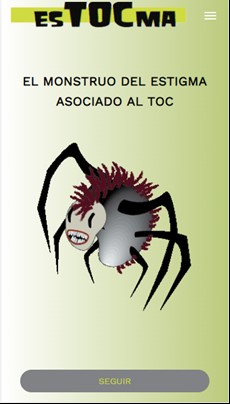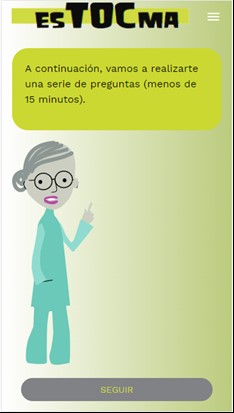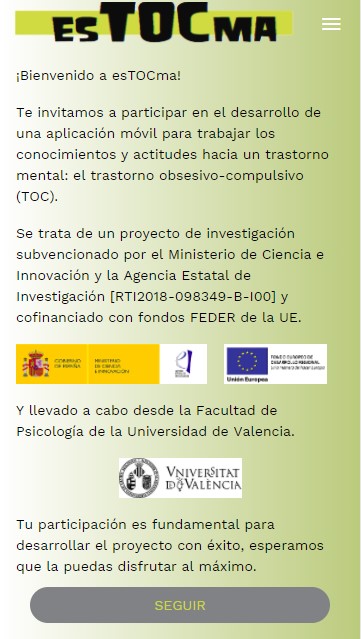- Universitat de València
- Garcia Soriano, Gemma
- PDI-Catedratic/a d'Universitat
- Castilla Lopez, Diana Virginia
- PDI-Titular d'Universitat
- Arnaez Sampedro, Sandra
- PDI-Ajudant Doctor/A
- Antonio Chaves García
Obsessive-compulsive disorder (OCD) is a disabling disorder that affects approximately 2-2.3% of the population. It is considered one of the ten leading causes of disability in the world, being a pathology that interferes negatively in the individual's daily life and that of their close environment. However, there is a high delay in seeking professional help, which causes serious public health issues.
Research suggests that this delay is related to poor knowledge about the OCD mental health condition and the associated stigma. Nevertheless, current programmes for the reduction of stigma associated with mental disorders are usually oriented towards pathologies such as schizophrenia, depression or bipolar disorder.
There is therefore a need for an anti-stigma programme associated with OCD; one that brings this disorder closer to society, contributes to early detection and improves the quality of life of patients suffering from OCD.
Research staff at the Universitat de València have developed esTOCma, an e-health mobile application designed to increase the adult population's knowledge about OCD using the gamification technique. EsTOCma is developed in a “serious game” format in which participants are asked to fight against the stigma monster and thus free the imprisoned characters, victims of their stigmatising beliefs against OCD.
The app is structured around three intervention strategies: psychoeducation, contact and cognitive restructuring. The first phase provides general information about what OCD is and what it is not, where to seek help, which treatments are effective, and so on. The second phase shows the user interviews of patients diagnosed with OCD as they talk about their experience with the problem and the psychological treatment they have received. In the third phase, a series of stigmatising beliefs and false myths about OCD are addressed through cognitive restructuring.
The aim of esTOCma is to reduce stigmatising beliefs about OCD and thus increase help-seeking behaviour. It can be applied in any field, being of particular interest in:
- Healthcare sector. Healthcare staff, in contact with potential patients, need tools that facilitate the diagnosis of OCD.
- Education sector. OCD usually begins in adolescence; early detection would facilitate a positive evolution of the problem and appropriate treatment.
The esTOCma tool has the following advantages over conventional tools:
- More effective prevention and detection of the disorder.
- Cost reduction in treatment.
- Improvement of the patient’s quality of life.
- Easy access, by incorporating new technologies for detecting and seeking help for OCD.
- Registered intellectual property
Blasco Ibáñez Campus
C/ Amadeu de Savoia, 4
46010 València (València)
















